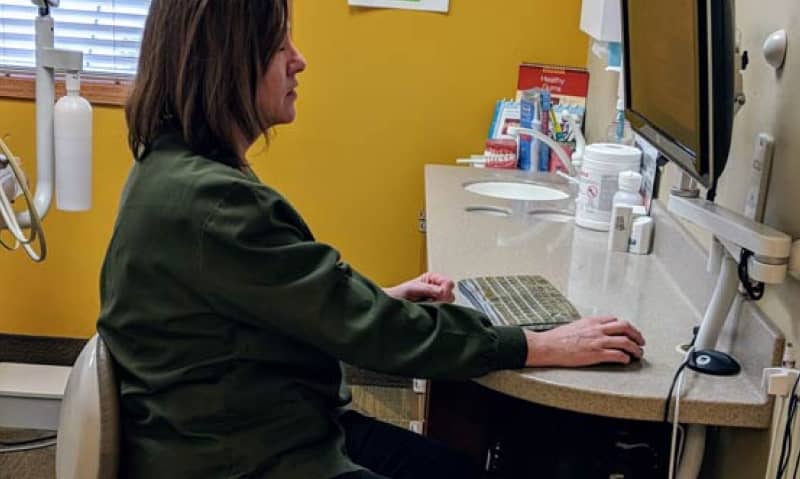Preventative Dental Care And Its Importance

Brush your teeth and take good care of them – you’ve heard the adults tell you this ever since you were little. While some people managed to get through from childhood to adulthood with no dental problems, the majority of people tend to stay relaxed when it comes to dental care. Why is oral hygiene important? Most individuals only visit a dentist whenever there’s something troubling them – painful and/or bleeding gums, for instance. But the reality is, good oral hygiene starts with preventative dental care.
Every time you visit a dentist and have even a minor procedure done, such as small fillings, your tooth now becomes at risk for other dental procedures. While dental fillings may bring a temporary solution to these dental problems, preventative dental care is done to make sure that you don’t have to experience these problems in the first place.
Preventative Dental Care Explained
Preventative dentistry is defined as a practice preventing the occurrence of gum diseases, cavities and other oral problems. This includes doing basic oral health hygiene tasks including but are not limited to brushing your teeth, using mouthwash, flossing, alongside regular visits to the dentist – even if you don’t have immediate dental concerns. By doing your little part and by practicing these simple tasks, you can take care of your teeth as you save money and prevent expensive dental repair costs.
Different Ways To Protect Your Teeth
Generally speaking, brushing your teeth should be done at least twice a day, for two minutes each session. Make sure that you use a soft-bristle toothbrush. Alternatively, you may also invest in a good electric toothbrush that has a timer feature. This way, it automatically lets you brush for full two minutes. Another advantage of using electric toothbrushes is that it prevents you from applying too much pressure when brushing. Brushing too hard may lead to different oral problems such as gum problems.
Another way of caring for your teeth involves using dental floss and rinsing with mouthwash. Doing all these things, and visiting your dentist or hygienist every six months for dental exams and regular dental cleaning will also help you achieve the bright, white smile that you’ve always wanted. Your dentist can catch any potential problems and provide a course of treatment that could prevent the situation from getting worse. With regular dental examinations, your dentist can easily repair the problem before the situation worsens.
In some other cases, during your regular checkup, your hygienist or dentist may warn you if there’s a potential problem and let you know what you need to do. For instance, your recent checkup has shown signs that you’re brushing too hard. From there, they can advise and remind you to brush carefully and softly.
Without preventative care, you may have to resort to restorative care treatments such as crowns, root canals, extractions, and fillings. When patients fail to follow simple preventative procedures and don’t visit their dentist twice a year, the chances of needing dental restorative care are higher.
Don’t Be Afraid To Seek Help From Your Dental Hygienist
Dental hygienists are oral health care professionals specializing in preventive oral health – and they have the license to provide and offer educational support and clinical services to patients. They aim to promote oral health, to improve the quality of your life. It is their main goal to make sure that you won’t find the need to receive restorative dental care. These dental professionals play a crucial role in your oral care by routine cleaning, patient education, and immediate detection of oral cavities and problems.
Dental hygienists are both experienced and knowledgeable in the fields of cosmetic and preventative dentistry care. In the medical field, a hygienist’s job is similar to a primary care provider, while a dental professional or dentist is similar to a medical specialist. Aside from proper education, dental hygienists can also perform a wide range of procedures and/or tasks such as:
– Assess your oral health, particularly your gums.
– Hygienists are trained to look and determine oral abnormalities. This way, they can easily asses what to do next and prevent one’s risk of getting oral diseases.
– They get rid of stains and hard to remove plaque through regular teeth cleaning. The cleaning process also involves using fluorides and sealants. These agents help with the prevention of cavities.
– While not all, some are also licensed to perform x-ray examinations.
– Dental hygienists are the ones that usually perform the early diagnostic tests – which will then be forwarded to your dentist for review and interpretation.
– Sometimes, they may also be the ones responsible for adding the fillings, and polishing your tooth if ever a cavity has been removed or drilled.
Are you now ready to take the next steps to make sure that your mouth stays healthy and clean through preventative dental care? Call us today and our team of friendly and experienced dental hygienists and dental professionals will provide the best possible oral care you deserve.
